Research Data
Researchers have long argued the positive outcomes of arts education and arts integration on student cognition. When properly practiced, arts integration positively affects student outcomes in academics, attendance, behavior, and social skills.
Below are research findings from Mississippi Whole Schools campuses. These results add to the compelling evidence of the significant role of the arts on student learning.
Mississippi Whole Schools Data Reports
Mississippi Whole Schools collects data from its member schools to track progress and growth. Recent data charts compare test results of member schools to their district peers and the state average.
FY2025 Whole Schools Data Charts
FY2024 Whole Schools Data Charts
FY2023 Whole Schools Data Charts
FY2022 Whole Schools Data Charts
FY2021 Whole Schools Data Charts
FY2020 no testing due to COVID impact
FY2019 Whole Schools Data Charts
FY2018 Whole Schools Data Charts
Arts Education in the South
This 2014 South Arts Research Publication includes findings from the South Arts region, including Alabama, Florida, Georgia, Kentucky, Louisiana, Mississippi, North Carolina, South Carolina, and Tennessee. Conducted with consistent methodologies and response rates, report findings show that a high percentage of students have some exposure to arts education.
Download the Executive Summary only
Download Phase I: Public School Data and Principals’ Perspectives
Arts Integration & the Mississippi Arts Commission’s Whole Schools Initiative: A Stennis Institute Study for Decision-Makers
This 2011 study conducted by the Mississippi State University Stennis Institute found the percentage of students scoring “Proficient or Above” on standardized Language Arts and Mathematics Mississippi Curriculum Tests, Grade 4 Mississippi Writing Assessment Tests, and 5th Grade Mississippi Science Tests was significantly higher at schools participating in Whole Schools that had effectively implemented the arts integration model when compared to student performance statewide and when compared to district level student performance for the school district within which the school was located. Schools that effectively implement arts integration were found to have reduced or actually eliminated the academic achievement gap for economically disadvantaged students.
The Arts Are an “R” Too: Integrating the Arts and Improving Student Literacy (and More) in the Mississippi Arts Commission’s Whole Schools Initiative
This 2004 study found that when implemented seriously and systematically into classroom lessons, the arts broadened a teacher’s reach to include many children who had not thrived in school previously and engendered opportunities for those who traditionally did well in school to stretch themselves further. In such situations, the arts were most definitely not add-ons; they were an equal partner, a fourth R, in students’ education.






